Apprenticeship Gives Afghans Hope
40-year-old Wahida Wahaj reopened a workshop that teaches girls and women embroidery, tailoring and carpet weaving in northeastern Afghanistan’s Badakhshan province.
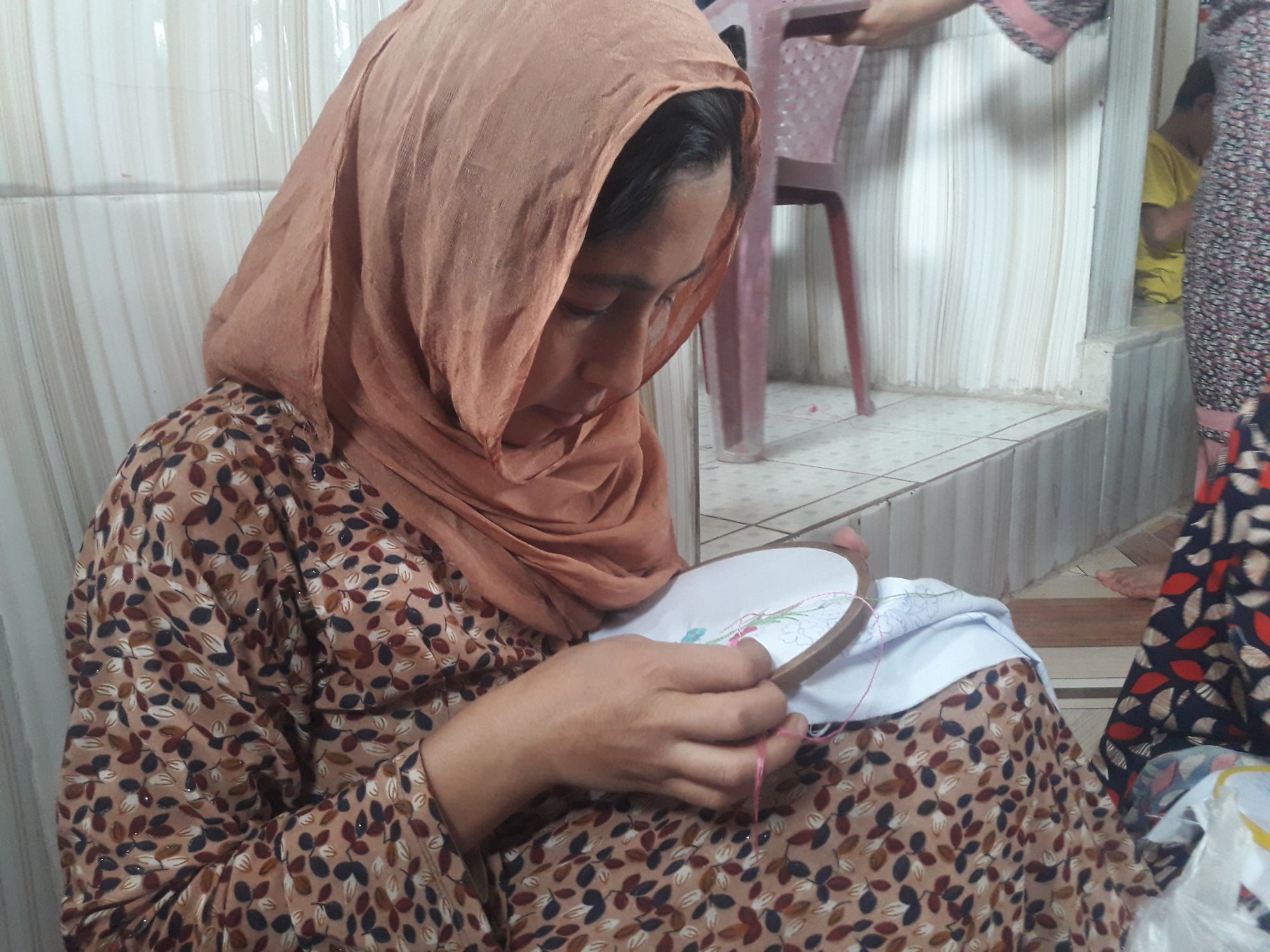
Written by Shabana Farahmand
FAIZABAD, BADAKHSHAN — In March 2022 the Taliban barred women from working in government offices, and girls above the 6th grade were no longer allowed to attend school. To this day, girls above 6th grade in most Afghan provinces are forbidden from school and restrictions imposed on women in both the workplace and public spaces are increasing.
In addition, Afghanistan has been battling an economic crisis since the international community decided to freeze the country’s assets and international aid agencies are no longer providing the financial and technical support that Afghan civilians depend on. Those actions came on the heels of the Taliban retaking Kabul, due to concerns the United States and international community have about the Taliban's plans for the future. Wages and salaries that were once able to support an entire family have fallen and are no longer sufficient, further exacerbating the deteriorating economic situation.
A report by the World Food Programme in August said that female-headed households are facing even worse conditions.
“96 percent of female-headed households are struggling with insufficient food , compared to 89 percent of male-headed households,” the report said.
Meanwhile, a number of innovative women have set up small businesses, creating opportunities for themselves and other women and girls.
Wahida Wahaj reopened the “Zanan-e Hirfawi-e Kahkashan,” a workshop in Faizabad, the capital of northeastern Afghanistan’s Badakhshan province. The workshop teaches girls and women how to produce a variety of handicrafts. In addition to being a source of income, the business provides a community for women and girls who might otherwise be isolated in their home.
Wahida is married and a mother to 10 children, seven girls and three boys. Mrs. Wahaj’s husband works as a realtor.
Wahida, formerly a government employee, was laid off after the Taliban assumed control of Afghanistan. After losing her job, she and her family reopened a handicraft production workshop that she first started in 2013 before it was forced to close due to a lack of funds.
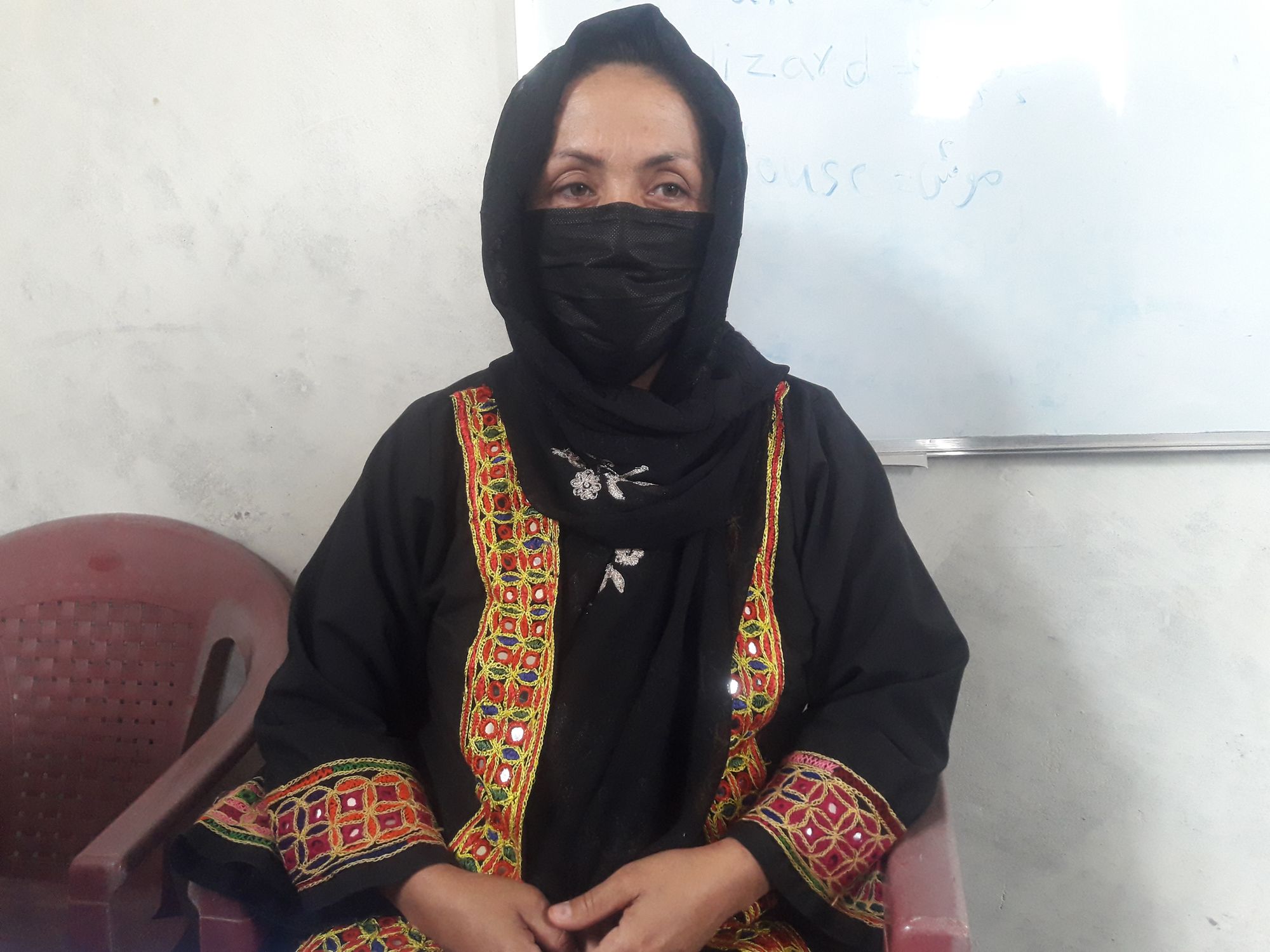
The initial investment for the business was 400,000 Afghanis (around $7,500 at the time). Mrs. Wahaj invested another 200,000 Afghanis ($2,260 at the current exchange rate) to support reopening the workshop.
“The aim for reopening the workshop is to prevent family disputes, and eliminate the feeling of isolation and depression in girls and women,” Mrs. Wahaj told Alive in Afghanistan.
Currently there are 150 apprentices working at the facility, 75 of whom are learning to tailor clothes, while the rest practice embroidery or carpet weaving. Five volunteer tailors and five carpet weavers are present to instruct the apprentices.
Apprentices and the workshop split the profits of items sold.
“Most of our apprentices are students, only a small number of them are married women,” Wahida said. She added that her workshop is in serious need of support but has not yet received any.
Wahida’s hope for Afghanistan is peace and stability, and “My daughters being able to seek education.” Her biggest fear is that conflict returns to Afghanistan.
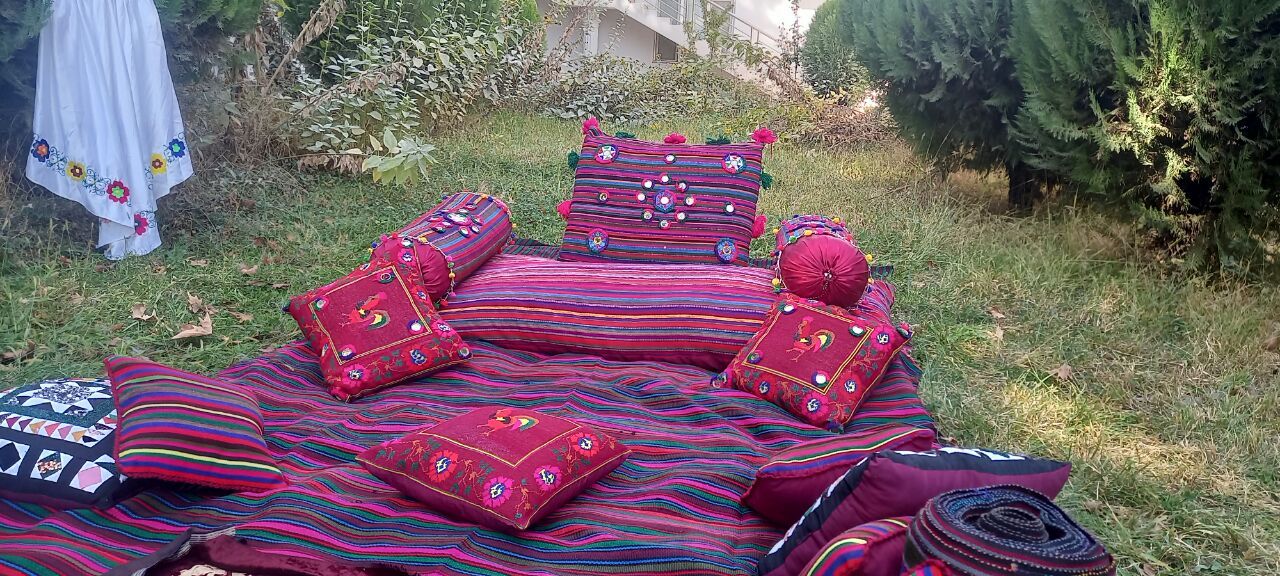
According to UNICEF, an estimated three million girls attended school before the Taliban government denied their right to an education. Among them 20-year-old Maryam Wahidi is now an apprentice at the textiles workshop, but prior to the Taliban's declaration she was in 11th grade.
Maryam, who started working at the workshop a little over a month ago said she is deeply saddened about being barred from going to school.
She hopes to learn to do embroidery on a machine and avoid living a life of isolation, at home alone with her thoughts. Her fingers are more in tune with a pen then they are with a needle.
“My mom and dad are both farmers and they have both had a hard life. Although my hope is to study until I get my PHD in law, and be a part of my country’s legal system, currently my biggest dream is for girls schools to reopen,” Maryam told Alive in Afghanistan, adding that “I am very concerned about schools remaining closed and girls remaining illiterate.”
Sia Mu Ahmadi is another 20 year-old apprentice who managed to finish high school. Sia Mu has four sisters and five brothers. Two of her brothers have bachelor’s degrees in law and religious studies, the rest are students. Her father, who was a laborer until the collapse, is currently unemployed and her mother continues to support the household working as a housewife.
Although universities are open for women, Sia Mu does not have the funds necessary to pursue her dreams of further education.
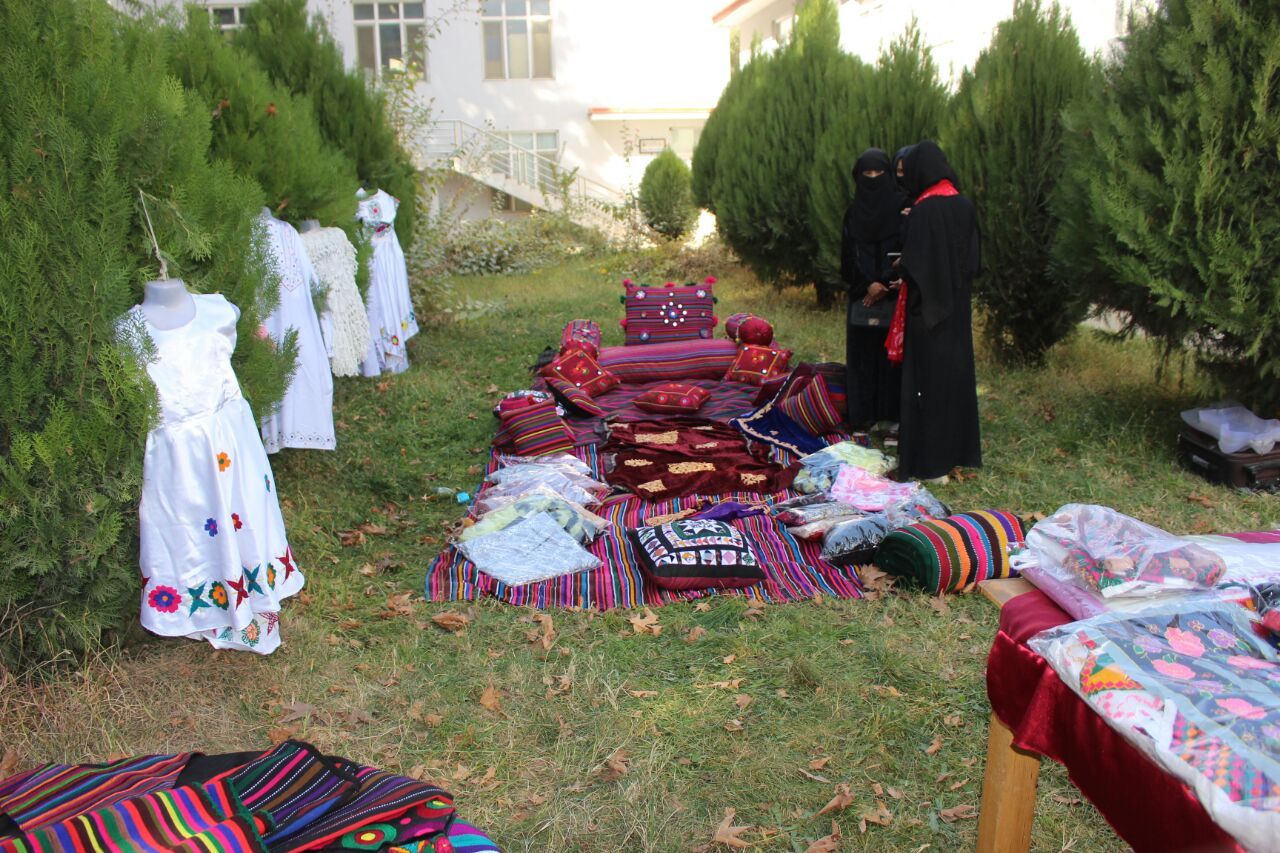
“I can continue my higher education if I get a scholarship, but I am currently trying to study to be a nurse, so I can become a cure for people’s pain,” Sia Mu said.
18 year-old Sonia is a high school student who started apprenticing at Ms. Wahaj’s workshop about a month and a half ago and is an embroiderer.
“You have to cling to something when the situation is bad. I chose embroidery to stay busy, forget that I cannot go to school anymore or bid goodbye to my dreams,” Sia Mu said.
“I was doing very bad at the start of the school year. I didn’t like anything and felt like there is nothing that will make me hopeful for life. I then heard that this workshop was established and is accepting apprentices. I came here to learn embroidery and escape the hopeless thoughts,” Sia Mu added.
Sia Mu urges the Taliban to reopen schools for girls above 6th grade.
Gita is another apprentice who was in her last year of high school before the Taliban took over. While working on making a tablecloth, she said, “If the Islamic Emirate (the name the Taliban use to refer to themselves) allowed girls to go to school, I would be giving my university entry exams this year.”
Unfortunately, the current government’s misogynistic policies have caused suffering and pain for Gita and girls like her, preventing them from fulfilling their dreams and reaching their full potential through education.
“I am sad that I cannot participate in the university exam or go to a university, but I have not lost hope. I felt better after I started working here and my attitude has changed too. I am really thankful to Mrs. Wahida for doing this,” Gita said.
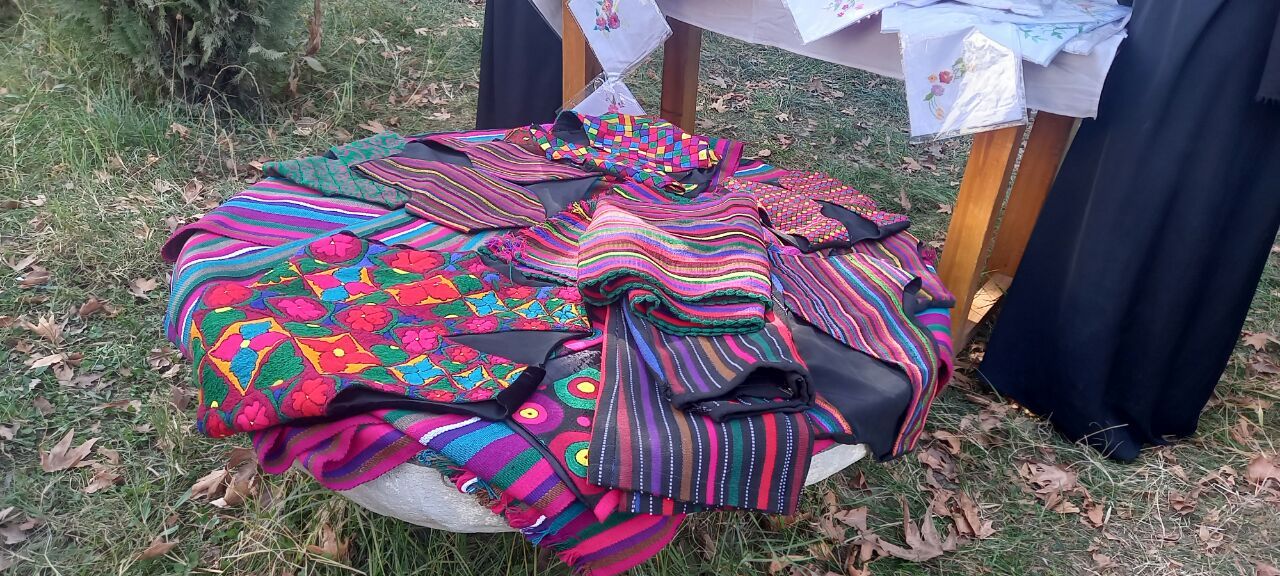
Gita’s biggest hope is to become a doctor so she can serve her impoverished nation.
Three months after reopening, the workshop held its first exhibition showing off a variety of handicrafts.
“The aim of this workshop is to showcase the work of our women, as well as promote their work and motivate them. Women can take part in our country’s development,” Mrs. Wahaj said.
Deeda Bahar, another event organizer said, “Women’s activities are effective in the growth of our country’s economy, and businesswomen must be supported.”
Beheshta Behnood, a visitor said, “I want our people to buy local; because it has quality and revitalizes Afghanistan’s name and brand.”
Visitors Maliha and Zaynab both agreed with Ms. Beheshta, with Zaynab saying that the Taliban must support Afghan women in such endeavors.
Angeza Bedar, another visitor believes that, “Lack of market for locally made handicrafts is one of the main challenges of Badakhshani women.”
The Zanan-e Hirfawi-e Kahkashan workshop is located at Akhir-e Guldan, Zer-e Butash, District 7, Faizabad. They can be reached by phone at: +93794785608
